There's nothing worse than having a bloated stomach and having to go on about your day.
It's hard enough to socialize in the modern-day world, but that feeling of an unpopped balloon in your stomach can take its toll on you.
Bloating isn’t a new problem, and people, especially women, have been suffering constant bloating and tummy issues for decades now.
In fact, according to the Washington Post, abdominal bloating is a problem for 1 in every 7 USA citizens.
Bloating, especially abdominal bloating, clearly shows that your gut health might be in bad shape.
If you're getting bloated after every other meal, it's time to consider it and find viable solutions to this digestive disorder.
One remedy to bloating we've seen talked about quite a lot on the internet is probiotics, the helpful little bacteria in the gut that keep things straight.
Do probiotics help with bloating?
In hindsight, yes! Probiotics play a major role in preventing digestive disorders like bloating, but other factors play a role that you need to be aware of before buying probiotics for bloating.
Not every bloating issue can be fixed by a probiotic, and that’s why we recommend reading this till the end to know where you stand and what you should do about your bloated tummy.
Table of Contents
- What Are Probiotic Supplements?
- What Bloating Means For Your Gut Health & Digestive System
- Bloating and Its Common Causes
- Do Probiotics Help With Bloating?
- Probiotics For Bloating - How Do They Work?
- Best Probiotics For Bloating - Top Picks For Relief
- Other Remedies For Bloating
- Exercising
- Cut back on FODMAP foods
- Increase Your Stomach Acid
- Avoid Certain Foods
- Drinking Plenty Of Water
- Make A Habit Of Eating Slowly
- Use Gut Soothing Supplements
- When To See A Doctor
- Bottom Line
What Are Probiotic Supplements?
Probiotics are, to better explain, the good guys in your digestive system. The helpful bacteria tend to make things right and prevent any digestive issues like bloating that take your gut health off track.
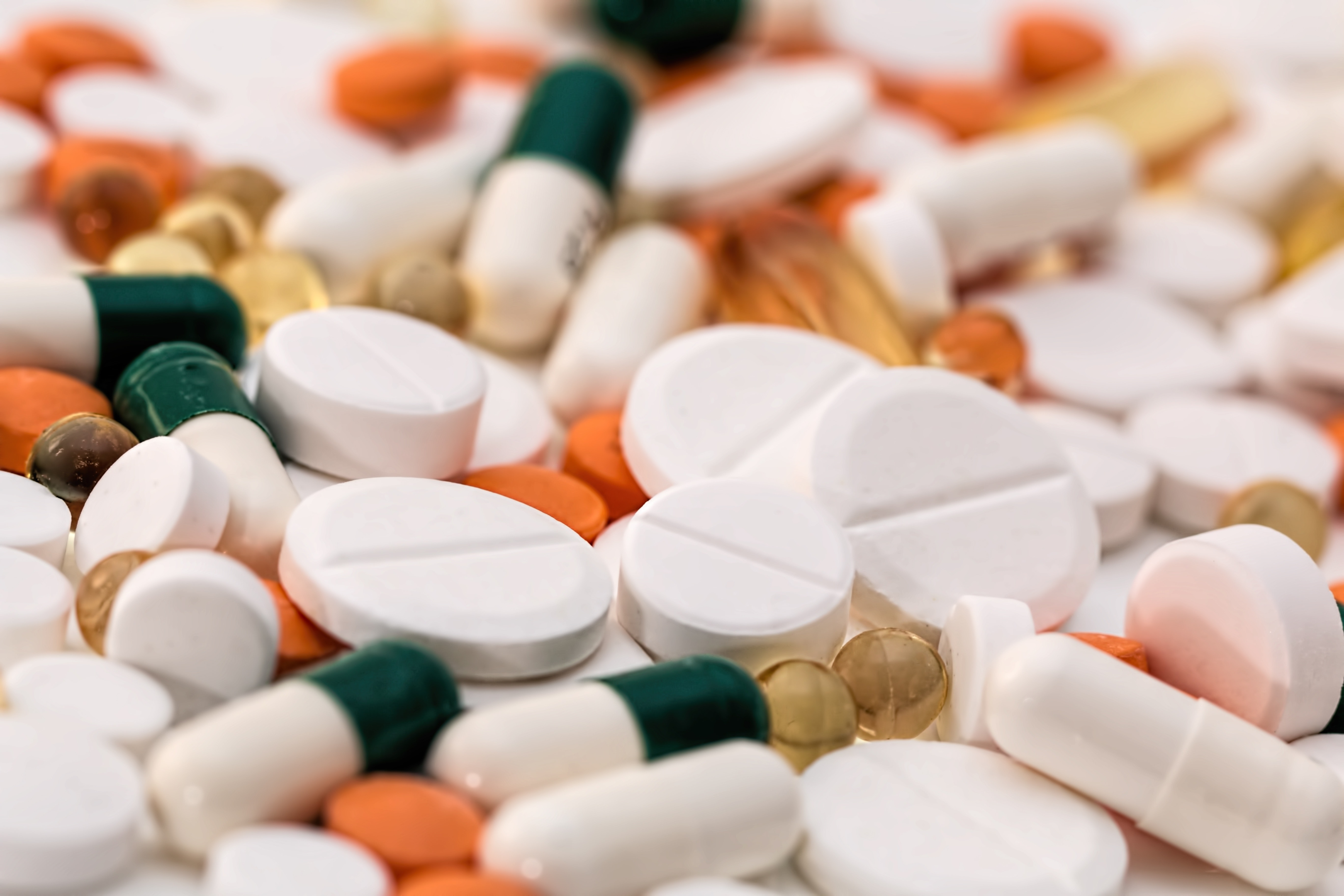
These good bacteria help maintain a healthy gut flora, which is responsible for digestion, controlling the immune system and getting rid of harmful bacteria in the body, which are likely the ones causing your bloated tummy.
But before you find the nearest probiotic supplement, start gulping it down to relieve bloating.
It's essential to know that no probiotic supplement, or any supplement for that matter, can magically relieve your bloating symptoms and that there can be a lot of other factors at play, such as concerning gastrointestinal symptoms, severe underlying medical conditions, and more.
So to make it easier for you, we’ll explain the science behind it and ensure that you understand the problem properly and how you can find remedies for it. Keep reading!
What Bloating Means For Your Gut Health & Digestive System

So you've had a bloated stomach for a while, but have you wondered why that is? What is your stomach trying to tell you? Hint: it's related to your gut condition.
One of the most common reasons for a bloated stomach is the overconsumption of processed foods and salt, which are one of the baseline problems that lead to Small Intestinal Bacterial Overgrowth (SIBO), a type of dysbiosis that can lead to problems like abdominal bloating, stomach issues and problems in overall digestive health.
The point we're making is that bloating isn't something that happens now and then, and if you're experiencing bloating regularly, it could mean that your gut health is in shambles.
Read more to find out about additional causes behind bloating.
Bloating and Its Common Causes
Small Intestinal Bacterial Overgrowth (SIBO) is a problem we discussed above that promotes a bloated stomach, but that’s not the only bloating symptom your body will exhibit. Here’s a list of
Imbalanced Gut Microbiome
Also termed as Dysbiosis, your gut microbiome is made up of harmful and helpful bacteria (collectively called gut bacteria) that support your digestion and take responsibility for your gut health.
However, when there's an imbalance of gut microbiota, specifically when the harmful bacteria dominate the good bacteria, problems like bloating and constipation can introduce themselves.
Bad bacteria, when dominant, can damage the gut lining, which not only gives way to gas and bloating but problems like Irritable Bowel Syndrome (IBS) as well.
Constipation
Constipation and bloating go hand in hand, which can be a problem if you have a sensitive stomach. When the stool frequency is low due to constipation, food takes a long time to travel through your gut, leading to in-body fermentation and the growth of harmful bacteria.
This fuels the growth of bad bacteria, leading to a damaged gut and, ultimately, excess gas and bloating.
High FODMAP Diet
A diet high in FODMAP foods includes a long string of short-chain carbohydrates that isn't digested by the digestive system quickly. Since they're fermentable, these FODMAP foods can cause excessive gas, Irritable Bowel Syndrome, and bloating in the stomach.
There's also a high chance that some FODMAP foods, like sauerkraut or dairy products, can trigger food allergies in you. Organ sensitivity and allergies are significant contributors to bloating, so make sure you know which foods you can ingest and which ones you should avoid.
Do Probiotics Help With Bloating?
Yes, probiotics can help relieve bloating symptoms and other digestive issues that might worsen your gut health.
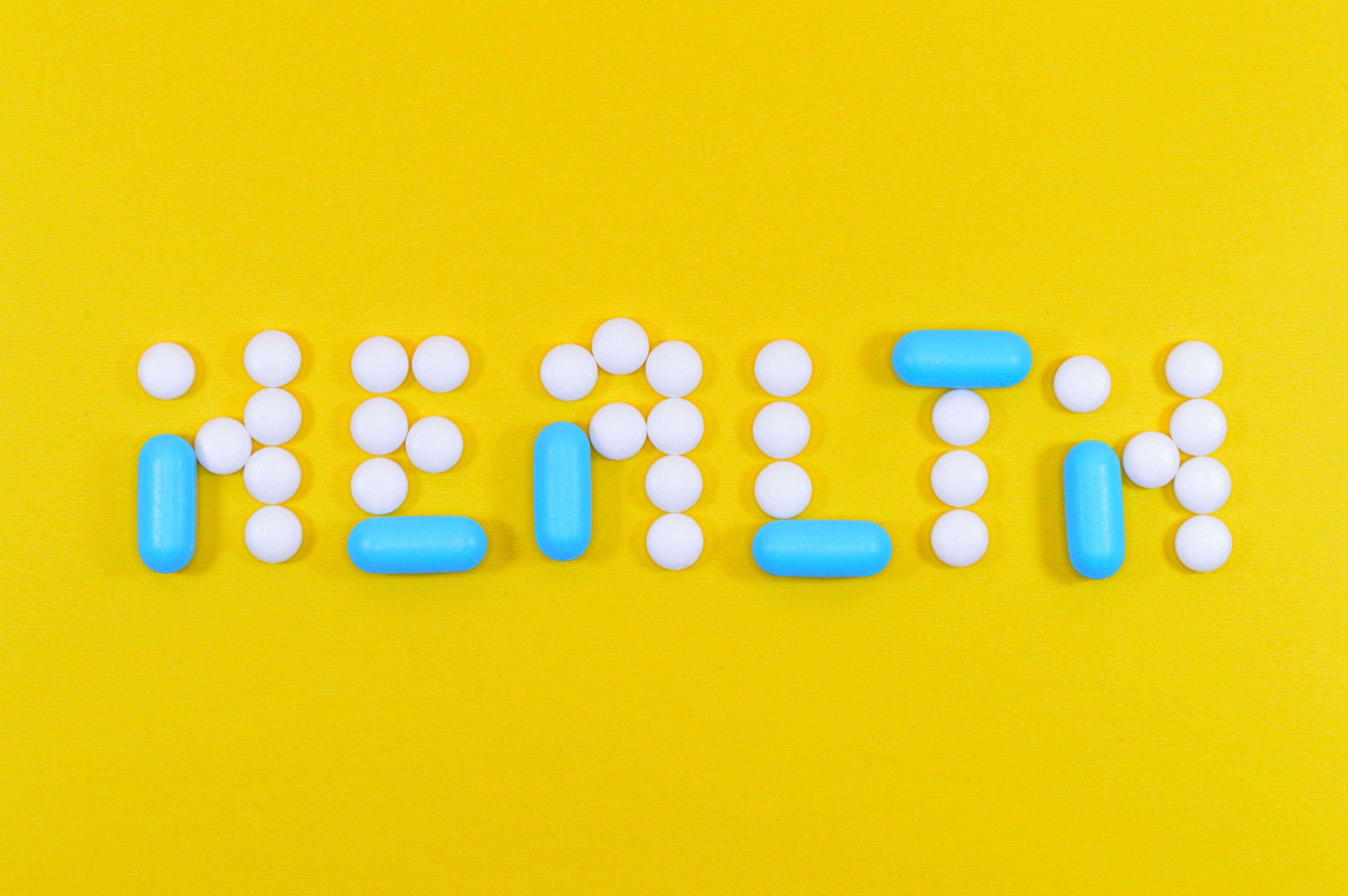
However, there's an important distinction here. Probiotics solely aim to enrich the gut bacteria and help the gut regain a balance in its live microorganisms to retain good digestive health.
Probiotics will eliminate bloating if an imbalance in the healthy gut microbiome causes the bloating.
Not only that, digestive issues like functional bowel disorders, Irritable Bowel Syndrome, and others can also be cured by probiotics, as long as the root cause is an imbalanced gut microbiome.
On the same note, taking probiotics won’t solve bloating if the underlying problem is something else entirely, which includes:
-
SIBO (Small Intestinal Bacterial Overgrowth)
-
Lower-than-normal stomach acid
-
Gut or stomach infections
-
Ulcer
Bloating itself is a broad symptom and can mean a list of different issues that range from being harmless to life-threatening, which is why it's important to get a holistic checkup by a physician, especially if your bloating is more frequent and painful.
Probiotics For Bloating - How Do They Work?
So it’s clear that probiotics relieve bloating by targeting the gut bacteria, but how does that happen?
Well, the way probiotics work is different from what most people think. Probiotic supplements don't necessarily colonize the good bacteria in the gut, hoping they'll overpower the bad bacteria in the bunch.
Instead, armed with a good delivery system, probiotics pass through the gut to bring balance to the gastrointestinal tract and replenish the gut bacteria to create a permanent, longer-lasting balance.
A probiotic's mechanism is often compared to tourism to explain it more simply, where tourists come to a country, boost the economy of that country, and then go about their way.
Though it's important you give these "tourists" time to boost your health and expect anywhere from 3 days to 4 weeks to let the probiotics do their job.
Best Probiotics For Bloating - Top Picks For Relief
Many probiotic supplements are out there today, and all of them aim to fix some problem in the gut. Regarding your bloating problem, you need to look for certain probiotic strains that work well against this problem. The most effective strains, in our experience, are the following:
-
Saccharomyces boulardii
-
Lactobacillus rhamnosus
-
Lactobacillus gasseri
-
Bifidobacterium breve
-
lactobacillus acidophilus
According to various studies, Lactobacillus strains are known to cater to problems like bloating and diarrhea and are often the key probiotic strains when treating Irritable Bowel Syndrome.
That concludes the strains you should be looking for in probiotic supplements. If you’re new to the probiotic world as a whole, don’t fret.
We’ve listed two of the best probiotics for bloating, so you won't mindlessly wander the internet for good products. You’re welcome, by the way.
IBSupport By Gistive
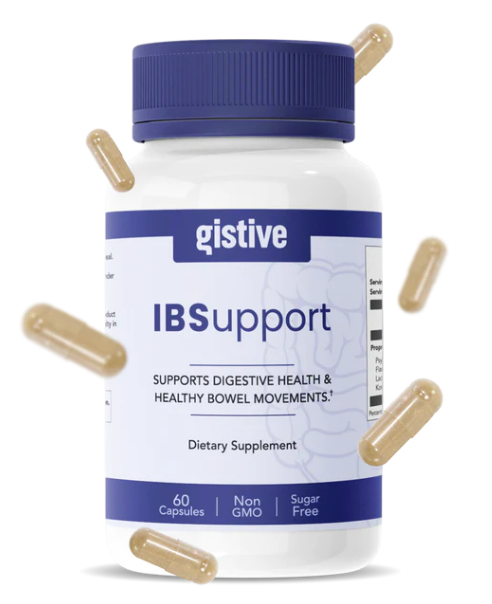
A sleek blend of prebiotics and probiotics, IBSupport is a fast-acting, Non-GMO probiotic that hits all the right spots and is especially good for problems like bloating, Irritable Bowel Syndrome, and more.
Its astounding delivery is infused with a gel-forming substance that helps soften your stools, enriches the gut microbiome, and reduces inflammation that leads to bloating.
In addition to the necessary probiotic strains, IBSupport is infused with 7 different superfoods, filling the fiber gaps.
Being a sugar-free product, it helps regulate cholesterol and sugar levels. It's the perfect probiotic to incorporate with a healthy diet and can prevent problems like bloating and constipation from coming back.
Restore Probiotic By Gistive
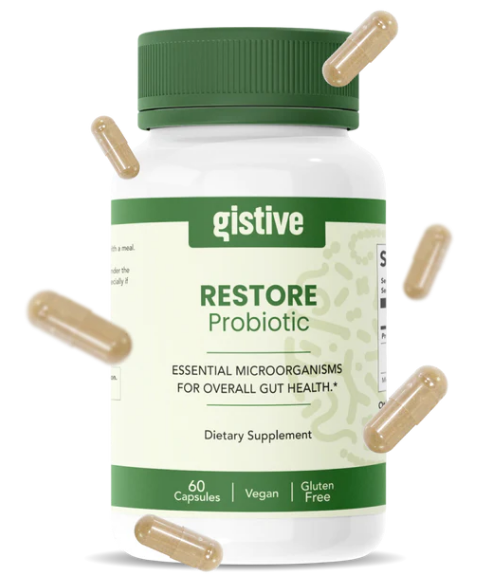
Second on our list of probiotics for bloating is Restore Probiotic, a multi-strain probiotic with all the essentials to get rid of bloating.
Some of the most important probiotic strains included in these probiotic supplements are Lactobacillus acidophilus and Lactobacillus rhamnosus, which are also termed anti-bloating strains, as they counter this very problem efficiently.
Additionally, each capsule in the bottle is filled with 5.75 billion CFUs (Colony Forming Units), which ensures proper digestion and regulates the digestive process, both of which lead to you maintaining a healthy digestive system.
Other Remedies For Bloating
Bear in mind that bloating is going to happen, and if you're someone with a sensitive gut-brain axis, there are a lot of sensory triggers that might cause you to bloat.
We've discussed how probiotic bacteria play a role in bloating and other gut health, but that shouldn't be the only trick up your sleeve. There are other ways to counter bloating too, you know.
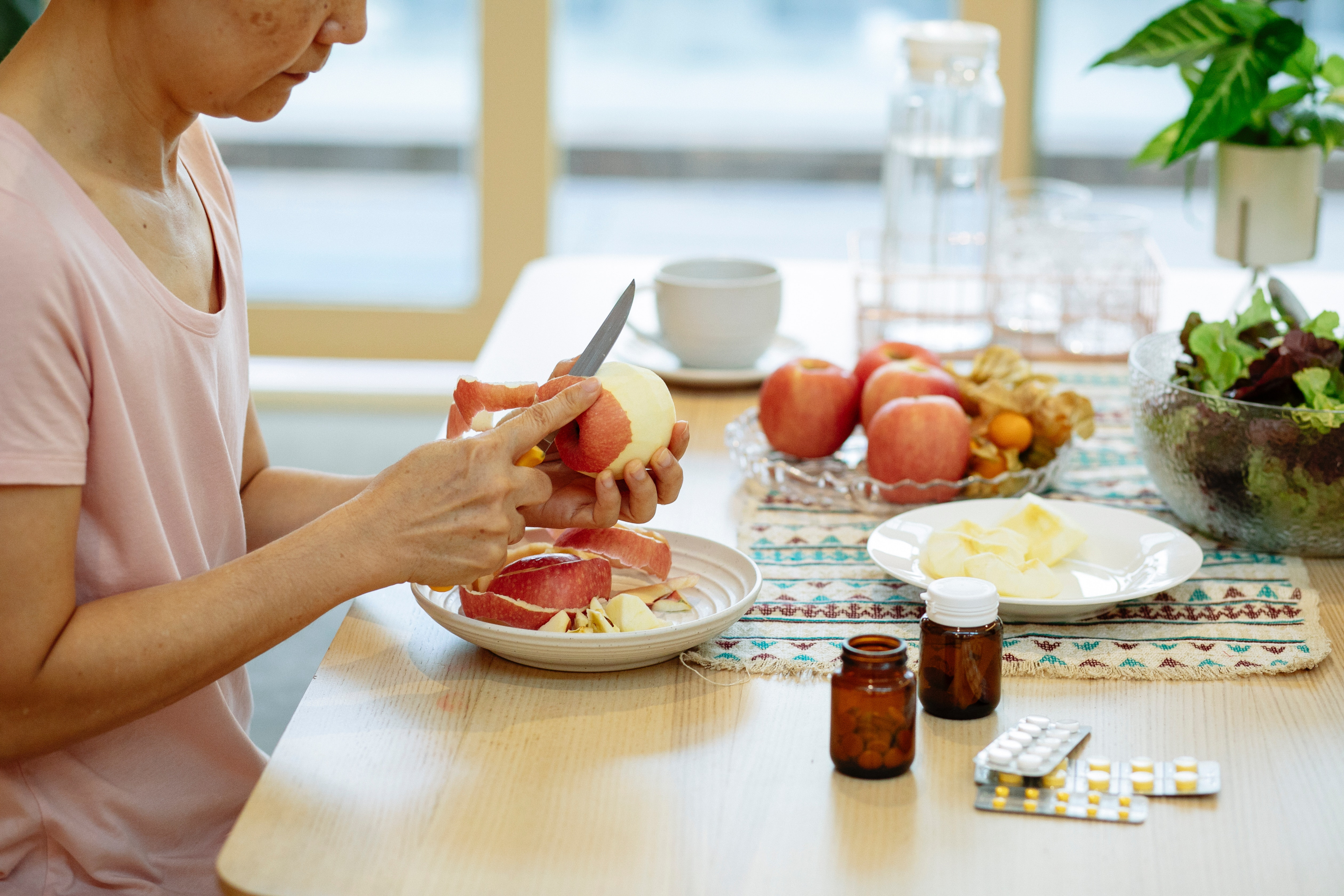
While we recommend probiotics for bloating, they should always come second to having a healthy routine and diet. Probiotics work best when coupled with a healthy eating routine, exercise, and more.
That being said, here’s a non-exhaustive list of remedies for bloating that don’t involve taking probiotics.
Exercising
We can't stress how important exercise is to your digestive health, and it's even more important when preventing bloating issues.
Healthy movements are among the most important factors behind healthy digestion and allow you to stimulate your digestive tract to relieve bloating.
We don't recommend heavy exercises in this case. When it comes to bloating, abdominal massages and walking are more than enough and can stimulate the digestive tract enough to make a big difference.
Cut back on FODMAP foods
We explained previously how the FODMAP diet could lead to bloating issues, as these short-chain carbohydrates take their time during digestion, which can lead to fermentation and, ultimately, bloating.
Though not every person’s gut will react to FODMAP foods by producing gas and bloating, that’s usually the case, especially in women.
That's why we recommend cutting back on FODMAP foods regardless of whether you struggle with bloating or not, since most doctors recommend adopting a low-FODMAP diet to achieve better gut health.
Increase Your Stomach Acid
That might seem counterproductive, considering how high stomach acid comes with its list of issues, but bear with us.
Low stomach acid is one of the biggest causes of bloating, and while many people might take antacids as they feel a little bit of heartburn, this temporary relief can lead to long-term determinants.
Think about it. If your stomach doesn’t have the acidity level to break down and digest your food properly, it will inevitably lead to a bloated tummy.
There’s not much you can do when that happens, and that’s why we recommend doing something to prevent it, rather than cure it.
Instead of antacids, start your mornings off with a glass of water, and drop a few drops of lemon or apple cider in the glass. The acidic nature of either of these two will help you digest better throughout the day, and avoid issues like bloating.
Avoid Certain Foods
The foods we eat have a certain effect on our bodies, and while that can differ from person to person, some foods are known to cause gas and bloating.
Making sure not to ingest those foods if you're prone to painful bloating will help you steer clear of the digestive issues that come with eating them.
While the following isn’t an exhaustive list, these foods include :
-
Polyols (Sugar Alcohol)
-
Carbonated drinks
-
Cruciferous vegetables
-
Beans
Drinking Plenty Of Water
Drinking lots of water is necessary with or without bloating, as it promotes better skin health and proper digestion.
Though, if you’ve recently started a diet high in fiber, which is great, try to gradually increase the amount of fiber you ingest in a day and couple it with high amounts of water until your body gets used to this.
Make A Habit Of Eating Slowly
Slow down there, champ. Your food isn't going anywhere, but if you keep eating at that pace, so will your bloating issue.
Make a habit of eating your food with focus and time, and let your gut have some prime time to digest the nutrients you’re putting inside your body healthily
Use Gut Soothing Supplements
Certain food supplements have soothing properties that can decrease the burning sensation of bloating and are naturally good for your gut health.
We recommend adding them to your daily diet to prevent digestive problems like these.
Take Papaya, for example. This fruit contains many healthy digestive enzymes that can soothe your gut and reduce inflammation and bloating to the minimum.
Peppermints produce a similar effect, fermented greens like Krauts, Mustard Greens, and more, and we recommend using them from time to time for bloating issues.
When To See A Doctor

We've made an extensive guide on probiotics for bloating, how they work, and everything you need to know to fix your bloating issue, but taking the matter into your own hands isn't always recommended, and you must know when going to the doctor is right.
Minor bloating and tummy aches are fine and can be treated at home using certain lifestyle changes, probiotics, and healthy eating.
However, when bloating or excessive gas production is coupled with other concerning symptoms, it's better to leave it to the professionals.
Some dangerous bloating symptoms that you need to look out for include:
-
Blood/Mucus in stools
-
Chronic and painful constipation and diarrhea
-
Excessive or sudden weight loss
-
High fever that persists
-
Inexplicable changes in bowel movements
Depending on the severity of your symptoms, your doctor might recommend taking some tests like blood and stool samples and thoroughly going over your medical history to give a consensus on the underlying issue behind bloating.
Bottom Line
Medical studies have greatly raised the credibility of probiotic usage against problems like bloating, and we’ve seen these supplements suppress side symptoms like constipation and diarrhea.
We at Gistive recommend taking probiotics with a healthy diet low in FODMAP foods and good exercise.
Additionally, if you think your symptoms are worse than usual, take a quick trip to the doctor's office to see why the problem persists and whether or not probiotics can help you.

